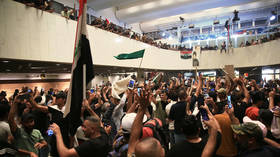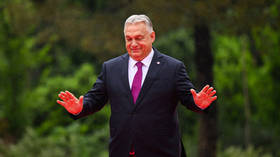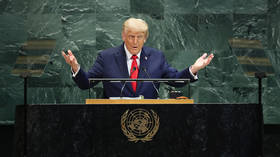Powerful Iraqi leader announces full retirement

Highly influential Iraqi politician Muqtada al-Sadr has announced a complete retirement from politics amid a constitutional crisis engulfing the nation’s parliament.
Al-Sadr, a Shia cleric whose political movement won the most seats in parliamentary elections last year but was unable to form a new government, announced a “final withdrawal” in a statement published on his Twitter account.
He accused his opponents of failing to listen to his calls for reform and said he would shut down his movement’s offices in response to the ongoing parliamentary deadlock.
The news invigorated al-Sadr’s supporters to renew their street protests in Baghdad. The same people were behind last month’s breach of the parliament building aimed at preventing a rival political alliance, the Coordination Framework, from forming a government.
The Sadrist Movement led by the 48-year-old politician won 73 seats in the 329-seat Iraqi legislature last year, but its attempts to form a majority ruling coalition failed, leading to a constitutional crisis. In June, his MPs resigned their positions as al-Sadr called for a full dissolution of the body.
This week, Iraq’s Supreme Federal Court is scheduled to meet to rule whether the parliament should be disbanded.
The cleric is an outspoken critic of foreign influence on Iraqi politics, be it Western or Iranian. The Coordination Framework is composed of forces reputed to be linked with Iranian interests in the country.
Iran-backed militias were crucial in Iraq’s effort to defeat the terrorist group Islamic State (IS, formerly ISIS), which overtook large swathes of the country, including its second-largest city, Mosul, in 2014. Al-Sadr has long been calling for curbing the influence of Shia militias in Iraq, and said they should not be represented in the new government.
This is not the first time Al-Sadr has announced his withdrawal from political life in Iraq, having done so on several occasions over the years before later reconsidering.













